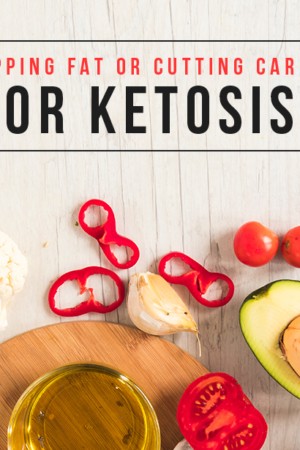Most people who switch to a Keto Diet are interested in the potential health benefits that come with increasing your ketone levels. By strictly limiting your carbohydrate intake, your body naturally switches from using glucose as a primary energy source to using ketones. This process, known as ketosis1, brings several important health benefits, which include helping people lower their blood pressure, regulate their blood sugar levels, reduce the risk of heart disease, and perhaps even reduce the risk of certain types of cancer2.
A Brief Overview of the Problems with Industrial Meat Production
Adherents to the Keto Diet achieve ketosis through eating a diet high in meat and healthy fats. While this will certainly help you to reach ketosis, there are several different health concerns related to the industrialized meat industry.
Due to the globalization of our food industry, up to 20% of the beef sold in the United States comes from foreign sources3. While the U.S. government does try to regulate the standards for foreign-imported beef, there are several reports of Brazilian beef companies packing rancid meat and then covering up the smell with certain types of acid4.
The problem with industrialized meat production is not simply limited to imported sources of beef. A recent article in Johns Hopkins Magazine5 explores how domestic meat production by large-scale agro-corporations poses a serious threat to public health through a combination of unsafe working conditions, ineffective and negligent regulatory measures, and an excessive use of antibiotics that are rendered ineffective through misuse.
The famous Greek thinker Hippocrates once said “let thy food be thy medicine, and thy medicine be thy food.6” For followers of the Keto Diet, it is important to reconsider the sources and origins of the different types of meats that make up the majority of our diet. While the average American eats around 270 pounds of meat each year7, a person on the Keto Diet will most likely have a much higher per capita consumption of meat. Finding sources of meat that are safe, healthy, and sustainably produced should thus be a priority for every keto diet practitioner.
The Opportunities with Community Supported Agriculture Programs
Due to some of the issues outlined above, health-conscious consumers should be wary of the beef and other types of meats that they find at their local supermarket. Fortunately, the amount of small farms in the United States is actually beginning to increase as many younger people are turning to farms as both a full-time occupation and a part-time hobby. The 2007 U.S. Agriculture Census8 showed that farms with less than $10,000 in revenue increased for the first time in decades.
Many of these small farmers rely on direct commercialization practices wherein local consumers subsidize the production costs of the farmer and in return receive organic, healthy, and locally produced food products. Community Supported Agriculture (C.S.A.) programs are growing exponentially around the country and this offers a unique way for consumers to support the local economy while also receiving healthy, organic, fresh, and seasonal food.
For people on the Keto Diet, boxes of vegetables and fruits might not be ideal. However, there are several farmers who offer CSA programs focused on meat production. For a modest price, you might be able to purchase a “share” of a cow and receive several months’ supply of meat that you can freeze. The same types of arrangements can be made for chickens, eggs, and dairy products.
Locating sources of sustainable and healthy meat should be a priority for everyone, and especially for those on the Keto Diet. You can search for local CSA programs in your region here9.
NUTRITIONAL DISCLAIMER
The content on this website should not be taken as medical advice and you should ALWAYS consult with your doctor before starting any diet or exercise program. We provide nutritional data for our recipes as a courtesy to our readers. We use Total Keto Diet app software to calculate the nutrition and we remove fiber and sugar alcohols, like erythritol, from the total carbohydrate count to get to the net carb count, as they do not affect your blood glucose levels. You should independently calculate nutritional information on your own and not rely on our data. The website or content herein is not intended to cure, prevent, diagnose or treat any disease. This website shall not be liable for adverse reactions or any other outcome resulting from the use of recipes or recommendations on the Website or actions you take as a result. Any action you take is strictly at your own risk.
- Benefits of Eating Rabbit Meat - August 20, 2018
- Raising Your Own Food for a Keto Diet: A Primer on Raising Rabbits - August 15, 2018
- Some Possible Health Effects of Meat Raised on Industrial Farms - June 25, 2018




